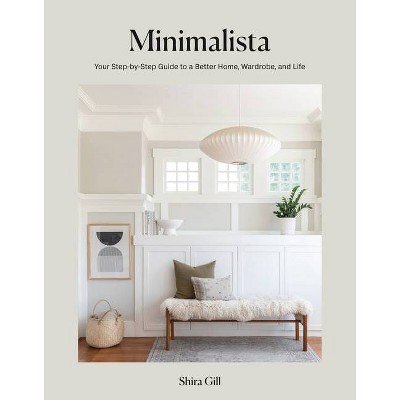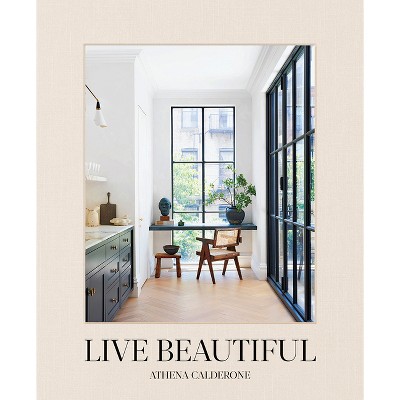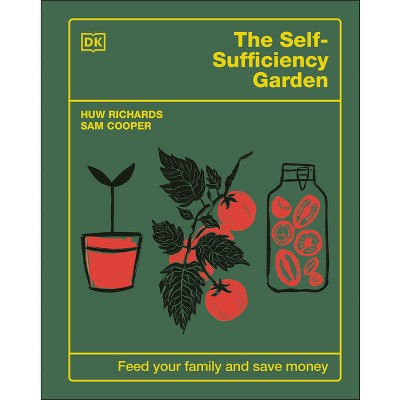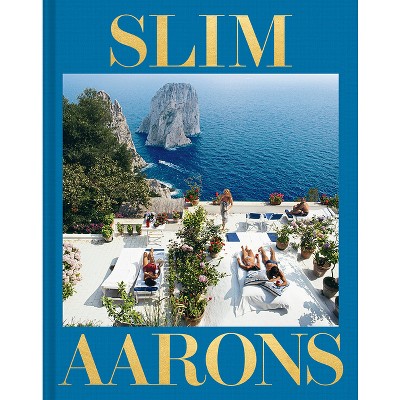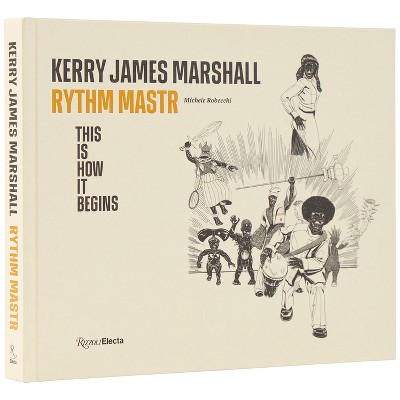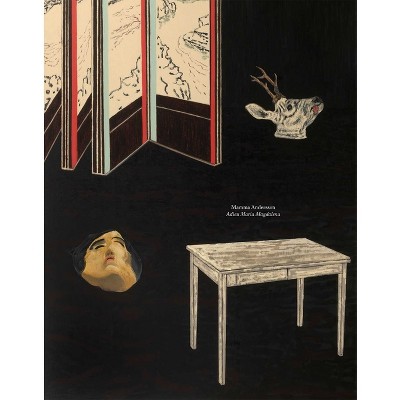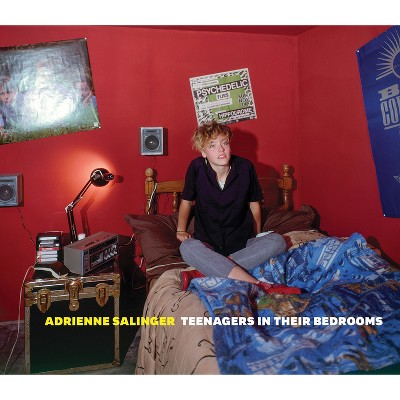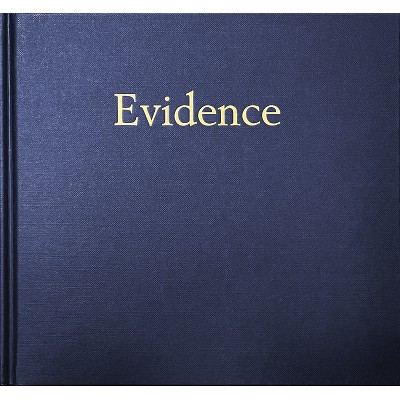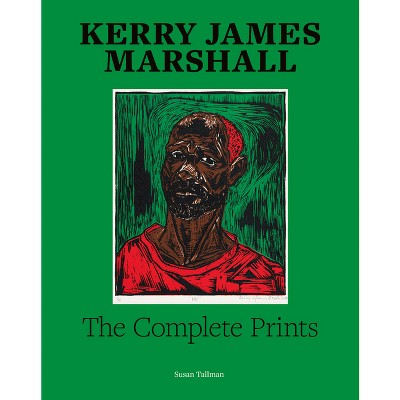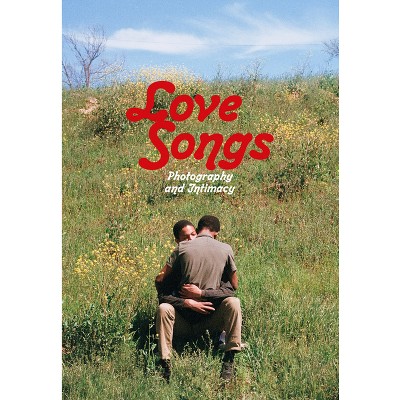Sponsored

Archigram: The Magazine - by Peter Cook & Thomas Evans & Steve Kroeter (Hardcover)
$195.99
In Stock
Eligible for registries and wish lists
Sponsored
About this item
Highlights
- Architecture's most influential, innovative and beloved underground magazine, reissued for the first time in a handsome clamshell boxPublished with Designers & Books.
- Author(s): Peter Cook & Thomas Evans & Steve Kroeter
- 288 Pages
- Architecture, Individual Architects & Firms
Description
Book Synopsis
Architecture's most influential, innovative and beloved underground magazine, reissued for the first time in a handsome clamshell box
Published with Designers & Books.
Inspired by comic-book culture, Pop art, psychedelia, the space race, sci-fi, Constructivism and Buckminster Fuller, the hugely influential British collective Archigram was the epitome of 1960s avant-garde architecture. Their self-published, lo-fi but materially ingenious magazine Archigram, begun in 1961, announced their ideas for such visionary concepts as "Walking City," "Plug-In City" and "Instant City." It also served to connect the international avant-garde of the 1960s. Archigram forged links with the Metabolists in Japan, Frei Otto, Utopie and Haus-Rucker-Co in Europe, and Buckminster Fuller in the US. They were also championed by critics such as Charles Jencks and Reyner Banham, who brought Archigram's famous fourth pop-up issue to the US in 1966. Today Archigram is one of the rarest major small-press publications of the 1960s, with individual issues selling for a minimum of $600.Archigram's influence has proved enduring, perhaps most famously in its widely acknowledged impact on Richard Rogers' and Renzo Piano's Centre Pompidou. Its members also taught and influenced the likes of Bernard Tschumi and Zaha Hadid, and inspired a later generation of nineties and noughties modernists embracing the potential of technology such as Future Systems, Foreign Office Architects, Diller Scofidio + Renfro, Anthony Dunne and Fiona Raby.
This authorized publication features exact facsimiles of all 10 issues (from number 1 in 1961 to the final issue 91/2 in 1974). All the original surprises and idiosyncrasies are faithfully reproduced: flyers, pockets, a pop-up centerfold, posters, gatefolds and an electronic resistor. (Only the seeds in the seed packet attached to issue 9 are not included, as seeds cannot be shipped across borders.) Accompanying the facsimile issues is a fully illustrated reader's guide featuring essays by Peter Cook, David Grahame Shane and Reyner Banham; tributes from the architectural community including Tadao Ando, Kenneth Frampton, Norman Foster, Zamp Kelp, David Rockwell and Patrik Schumacher; an index of key concepts and contents; a scrapbook of previously unseen archival images; a bibliography of the partners' publications; and biographies.
The architect-collaborative group Archigram was established in London by Warren Chalk, Peter Cook, Dennis Crompton, Ron Herron, David Greene and Michael Webb. Working together until 1975, the group operated as an experimental think tank, producing a magazine, projects, models, exhibitions and proposals that represented a shift in how architectural practice is considered, prioritizing processes and responsive structures for living over the notion of architecture as a static, form-based commodity. Influenced by popular culture and responding to the proliferation of technological advances at the time, as well as recognizing the increasing social and political discontent, Archigram's production emphasized mobility and flexibility in ways that continue to have currency today.
Contributors include: Tadao Ando, Shigeru Ban, Aric Chen, Beatriz Colomina, Mike Davies, Odile Decq, Neil Denari, Norman Foster, Kenneth Frampton, Nicholas Grimshaw, Ivan Harbour, Tom Heneghan, Steven Holl, Bjarke Ingels, Toyo Ito, Zamp Kelp, Reed Kroloff, Toshiko Mori, Laurids Ortner and Manfred Ortner, Juhani Pallasmaa, Mónica Ponce de León, David Rockwell, Moshe Safdie, Annabelle Selldorf, Patrik Schumacher, Alan Stanton, Bernard Tschumi.
Review Quotes
For those who want to build their own Archigram archive, the forthcoming facsimile edition offers consumers the same tactile delights as the originals--along with the nostalgia of the group's 1960s and '70s radical design sensibilities that changed the course of architecture.-- "Harvard Graduate School of Art and Design"
It's been more than 60 years since Archigram hit the press, but the magazine founded by Warren Chalk, Peter Cook, Dennis Crompton, Ron Herron, David Greene, and Michael Webb still hasn't lost its charge.--Spencer Bailey "The Slowdown"
The category of unbuilt and fantastical design ideas known as 'paper architecture' may have no better exemplar than the radical British architecture group Archigram.--Nate Berg "Fast Company"
Dimensions (Overall): 17.0 Inches (H) x 14.9 Inches (W) x 2.0 Inches (D)
Weight: 5.45 Pounds
Suggested Age: 22 Years and Up
Number of Pages: 288
Genre: Architecture
Sub-Genre: Individual Architects & Firms
Publisher: Distributed Art Publishers (DAP)
Theme: Monographs
Format: Hardcover
Author: Peter Cook & Thomas Evans & Steve Kroeter
Language: English
Street Date: November 11, 2025
TCIN: 1003233472
UPC: 9781933045856
Item Number (DPCI): 247-41-4043
Origin: Made in the USA or Imported
If the item details aren’t accurate or complete, we want to know about it.
Shipping details
Estimated ship dimensions: 2 inches length x 14.9 inches width x 17 inches height
Estimated ship weight: 5.45 pounds
We regret that this item cannot be shipped to PO Boxes.
This item cannot be shipped to the following locations: American Samoa (see also separate entry under AS), Guam (see also separate entry under GU), Northern Mariana Islands, Puerto Rico (see also separate entry under PR), United States Minor Outlying Islands, Virgin Islands, U.S., APO/FPO
Return details
This item can be returned to any Target store or Target.com.
This item must be returned within 90 days of the date it was purchased in store, shipped, delivered by a Shipt shopper, or made ready for pickup.
See the return policy for complete information.
